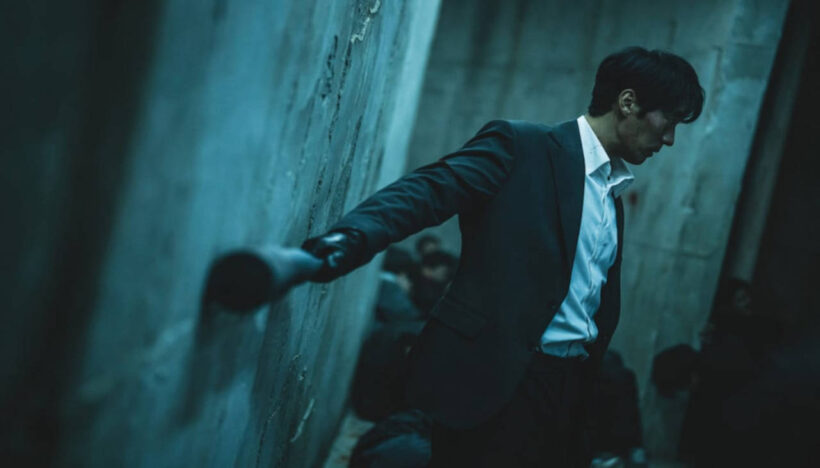In the wake of hyper-stylized action franchises like John Wick, where combat becomes choreography, Mercy for None crashes onto Netflix like a steel pipe to the ribs. This South Korean revenge saga ditches the gloss in favor of old-school brutality, a throwback to the claustrophobic savagery of The Raid and the bone-deep exhaustion of Oldboy’s legendary corridor fight.
Fighting Like It Hurts
At its core, Mercy for None is a tale as old as blood: a man returns to the underworld he left behind to avenge the murder of his brother. But while the premise is familiar, the execution is anything but. This isn’t about style. It’s about survival.
Every fight in Mercy for None feels like it was filmed with broken knuckles. The blows don’t bounce, they land. Hard. There’s no wirework ballet, no slow-motion acrobatics. Instead, the series embraces a grimy, handheld intensity reminiscent of The Raid, where each punch sounds like bone on wet cement, and momentum swings with terrifying speed.
Like Oldboy before it, the series understands that small spaces breed desperation. Hallways, stairwells, and backroom alleys become arenas of punishment, where the protagonist, Nam Gi-jun (played with haunting restraint by So Ji-sub), dishes out justice with a battered bat and the dead-eyed resolve of someone who has nothing left to lose.
The Weight of Violence
So Ji-sub’s performance is integral to the show’s impact. He carries the physical and emotional scars of his past not in long monologues, but in the way he limps into battle and breathes between punches. The fights are not just physical—they’re psychological. Like Oh Dae-su in Oldboy, Gi-jun fights with trauma, not just fists. He’s tired. Wounded. Yet unstoppable.
There’s a scene midway through the series—set in a narrow hallway stained with flickering light—that feels like a spiritual homage to Oldboy’s one-take masterpiece. But where that film was balletic, Mercy for None is jagged, chaotic, almost ugly. And that’s the point. Violence here is never pretty, it’s personal.
A Different Kind of Action Drama
Much like The Raid, the series prioritizes impact over plot. The storyline—while serviceable—is largely a framework to hang escalating battles and moral decay upon. Dialogue is minimal. Guns are rare. Instead, the series opts for improvised weaponry, close-quarters grappling, and pure blunt force trauma.
The editing avoids flashy cuts. It lingers on broken noses, trembling hands, and the silence after a body hits the floor. There’s tension in the anticipation and exhaustion in the aftermath. Few shows let you feel the weariness of vengeance like this one.
A Love Letter to Painful Cinema
Mercy for None isn’t for everyone. It’s grim, grounded, and often emotionally cold. But for fans of realistic action, those who rewatch The Raid to study footwork, or still flinch at the hammer in Oldboy, this is essential viewing.

